Elena Cecchi Fedi, Auser Musici & Carlo Ipata - Porpora: Or sì m’avveggio, oh Amore (2008)
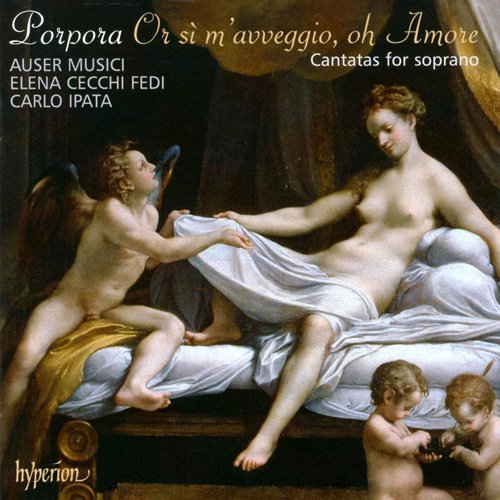
Artist: Elena Cecchi Fedi, Auser Musici, Carlo Ipata
Title: Or si m'avveggio, oh Amore: Cantatas for Soprano by Nicola Porpora
Year Of Release: 2008
Label: Hyperion
Genre: Classical
Quality: FLAC (image + .cue, log, booklet)
Total Time: 55:18 min
Total Size: 278 MB
WebSite: Album Preview
Tracklist:Title: Or si m'avveggio, oh Amore: Cantatas for Soprano by Nicola Porpora
Year Of Release: 2008
Label: Hyperion
Genre: Classical
Quality: FLAC (image + .cue, log, booklet)
Total Time: 55:18 min
Total Size: 278 MB
WebSite: Album Preview
01. Credimi pur che t'amo, cantata for voice & orchestra: Sinfonia. Presto
02. Credimi pur che t'amo, cantata for voice & orchestra: Sinfonia. Andante, e spiritoso
03. Credimi pur che t'amo, cantata for voice & orchestra: Sinfonia. Allegro
04. Credimi pur che t'amo, cantata for voice & orchestra: Recitative. Credimi pur che t'amo
05. Credimi pur che t'amo, cantata for voice & orchestra: Recitative. Saro pur nell'amarti
06. Credimi pur che t'amo, cantata for voice & orchestra: Aria. Amami e non languir
07. Or che d'orrido verno, cantata for soprano, flute, strings & continuo: Sinfonia
08. Or che d'orrido verno, cantata for soprano, flute, strings & continuo: Sinfonia
09. Or che d'orrido verno, cantata for soprano, flute, strings & continuo: Recitative. Or che d'orrido Verno
10. Or che d'orrido verno, cantata for soprano, flute, strings & continuo: Aria. Lungi dal ben che s'ama
11. Or che d'orrido verno, cantata for soprano, flute, strings & continuo: Recitative. Pur fra tanta mia pena
12. Or che d'orrido verno, cantata for soprano, flute, strings & continuo: Aria. Nocchier che mira
Italian period instrument group Auser Musici was founded in 1997, making the rounds of smaller European labels such as Tactus, Agora Musica, and Symphonia before finally landing with Hyperion, with whom it is now exclusive. Porpora: Cantatas for Soprano is the group's third Hyperion release and it visits a key area of output in the work of a major figure of the Baroque who remains little celebrated, Neapolitan composer Nicola Porpora. Residing in London from 1733 to 1736, Porpora's run as composer with the Opera of the Nobility was viewed in its time as one of the rare instances when George Frederick Handel had serious competition of some sort. Handel must have been delighted that the rival Opera of the Nobility ran into money problems and went belly up in 1737, sending Porpora back to Naples. Rather than holding court at a given location, like Johann Sebastian Bach in Leipzig or Georg Philipp Telemann in Hamburg, Porpora moved around a lot, which is one reason why it has proven so difficult for history to catch up to him.
Indeed, the four chamber cantatas featured here come from four different eras from within Porpora's retinue; Credimi pur che t'amo originated in Naples and dates from 1712. Or si m'avveggio, oh Amore also comes from Naples, but was more likely written in the 1720s. Gia la notte s'avvicina (La pesca) made its bow in a deluxe printed edition in London in 1735, and Or che d'orrido verno could date from the 1720s or even as late as the 1740s, which for Porpora was mostly spent in Venice; stylistically, it does at least sound more Venetian. The last named work is clearly the strongest of these four cantatas, with bold harmonies, driving rhythms, and imaginative interplay between the strings and the two flute parts. It's a real workout for soprano soloist Elena Cecchi Fedi, as well, as she has to contend with passagework that's as least as difficult as what the winds have to play and often mirrors those parts; unlike some of Telemann's secular cantatas, none of these works are meant for amateurs. Fedi has an attractive, wine-dark soprano voice, and sings all of these unfamiliar works well despite some hesitance in approach to an ornament here and there.
Porpora: Cantatas for Soprano is a little off Hyperion's established standard in some respects; little defects such as a stray squeak on a violin string would have been gone back and done over in Ted Perry's day, whereas here they are left in. Likewise, the disc is rather short at 55:20; it easily could have another cantata, and with Porpora there are at least another 125 to choose from. Nevertheless, there is every reason to want to continue to support Hyperion and some just simply cannot get enough Baroque solo cantatas; Porpora: Cantatas for Soprano easily fills the need. -- Uncle Dave Lewis
Indeed, the four chamber cantatas featured here come from four different eras from within Porpora's retinue; Credimi pur che t'amo originated in Naples and dates from 1712. Or si m'avveggio, oh Amore also comes from Naples, but was more likely written in the 1720s. Gia la notte s'avvicina (La pesca) made its bow in a deluxe printed edition in London in 1735, and Or che d'orrido verno could date from the 1720s or even as late as the 1740s, which for Porpora was mostly spent in Venice; stylistically, it does at least sound more Venetian. The last named work is clearly the strongest of these four cantatas, with bold harmonies, driving rhythms, and imaginative interplay between the strings and the two flute parts. It's a real workout for soprano soloist Elena Cecchi Fedi, as well, as she has to contend with passagework that's as least as difficult as what the winds have to play and often mirrors those parts; unlike some of Telemann's secular cantatas, none of these works are meant for amateurs. Fedi has an attractive, wine-dark soprano voice, and sings all of these unfamiliar works well despite some hesitance in approach to an ornament here and there.
Porpora: Cantatas for Soprano is a little off Hyperion's established standard in some respects; little defects such as a stray squeak on a violin string would have been gone back and done over in Ted Perry's day, whereas here they are left in. Likewise, the disc is rather short at 55:20; it easily could have another cantata, and with Porpora there are at least another 125 to choose from. Nevertheless, there is every reason to want to continue to support Hyperion and some just simply cannot get enough Baroque solo cantatas; Porpora: Cantatas for Soprano easily fills the need. -- Uncle Dave Lewis
![Martin Listabarth Trio - In Her Footsteps (2026) [Hi-Res] Martin Listabarth Trio - In Her Footsteps (2026) [Hi-Res]](https://www.dibpic.com/uploads/posts/2026-02/1771946819_folder.jpg)
![Chad Lefkowitz-Brown - City Spirit (2026) [Hi-Res] Chad Lefkowitz-Brown - City Spirit (2026) [Hi-Res]](https://www.dibpic.com/uploads/posts/2026-02/1772171883_y3mc4z2lmsr7a_600.jpg)
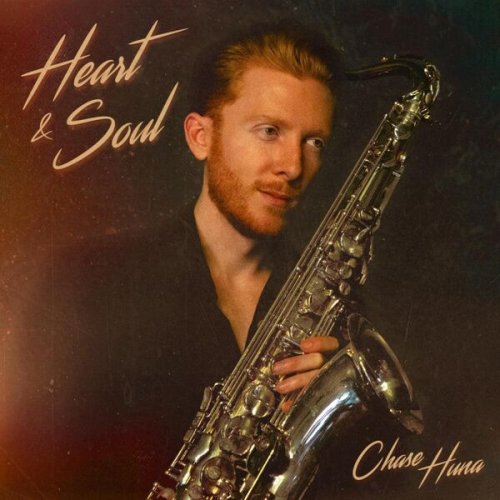
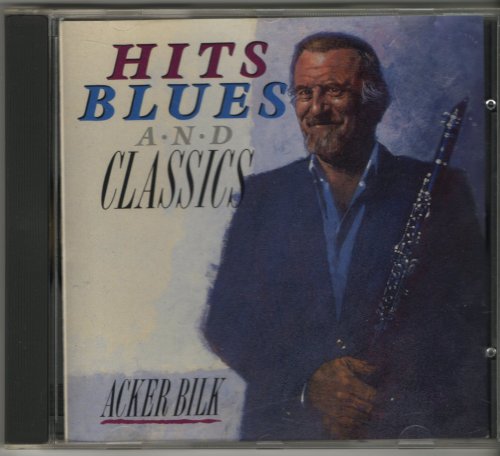
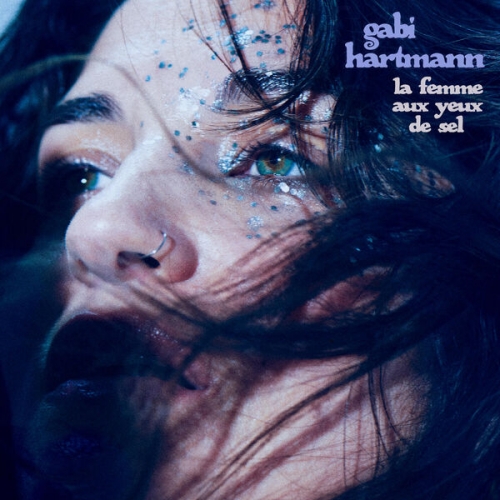

![Bill Frisell - In My Dreams (2026) [Hi-Res] Bill Frisell - In My Dreams (2026) [Hi-Res]](https://www.dibpic.com/uploads/posts/2026-02/1772013732_tpex4dl25956z_600.jpg)
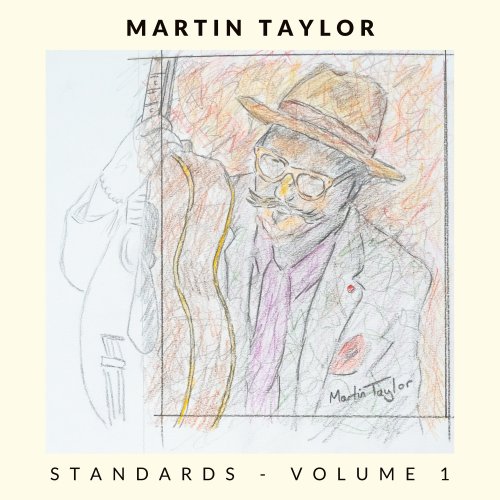
![Various Artists - Lost Tracks: Accra to Addis (2026) [Hi-Res] Various Artists - Lost Tracks: Accra to Addis (2026) [Hi-Res]](https://img.israbox.com/img/2026-02/26/lqvyrzr9f9yed5j0r3zv7c1r6.jpg)